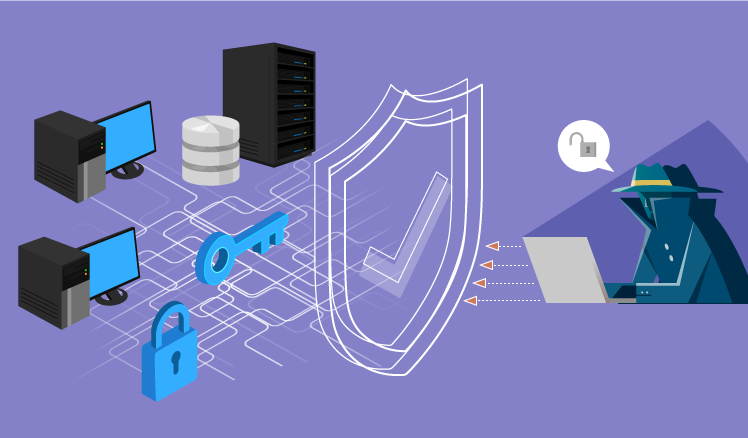In an ever-expanding digital world, where information serves as the currency of the modern era, businesses must take the protection of their data seriously. Consequently, the rise of cyber threats has made network security services an absolute necessity for any organization looking to thrive and succeed in today’s highly competitive landscape. Within this comprehensive guide, we, as seasoned experts in the field of network security, will delve deep into the world of network security services, elucidating their significance, addressing the challenges they tackle, and exploring how they can fortify your business against potential threats.
Understanding the Digital Threat Landscape
The digital threat landscape has evolved at an unprecedented pace. Cybercriminals are becoming more sophisticated and relentless in their pursuit of valuable data. As a result, businesses are facing an increasingly complex and challenging security environment. From ransomware attacks that hold businesses hostage to data breaches that compromise sensitive information, the stakes have never been higher.
Understanding the enemy is the first step in defending your business, and this is where network security services come into play. Network security services can help you to identify and mitigate the latest threats, protect your data and systems, and ensure compliance with relevant regulations. In short, network security services are essential for any business that wants to stay safe in the digital world.
Threat Detection and Prevention
Network security services encompass a wide range of tools and techniques designed to detect and prevent threats before they can wreak havoc on your systems. These services employ cutting-edge technologies, including intrusion detection systems (IDS), intrusion prevention systems (IPS), and next-generation firewalls (NGFWs), to monitor network traffic in real-time and identify suspicious activities. By analyzing network patterns and behaviors, these systems can pinpoint potential threats and take immediate action to mitigate them.
Protecting Confidential Data
Confidential data, such as customer information, intellectual property, and financial records, is the lifeblood of any business. Network security services, on the other hand, ensure that this data remains secure and out of reach of malicious actors. Furthermore, through encryption, access control, and data loss prevention (DLP) measures, these services effectively safeguard your most critical assets. Consequently, they provide you with peace of mind in an increasingly risky digital environment. In addition, by employing robust security protocols, you can confidently navigate the complex landscape of cybersecurity threats.

The Role of Network Security Services in Business
Now that we have established the gravity of the digital threat landscape, let’s explore how network security services play a pivotal role in fortifying your business.
1. Enhanced Productivity
A secure network allows your employees to work without the fear of data breaches or cyberattacks. When employees are confident in the security of their digital environment, they can focus on their tasks, resulting in increased productivity. Network security services create a safe and conducive workspace for your team, ultimately boosting efficiency and output.
2. Customer Trust and Reputation
In today’s world, where news of data breaches spreads like wildfire, maintaining customer trust is paramount. A single breach can tarnish your business’s reputation and lead to significant financial losses. By investing in robust security services, you not only protect your customers’ data but also demonstrate your commitment to their privacy and security. This fosters trust and loyalty, which are invaluable assets in any industry.
3. Legal and Regulatory Compliance
Various industries are subject to stringent data protection regulations, such as the General Data Protection Regulation (GDPR) and the Health Insurance Portability and Accountability Act (HIPAA). Non-compliance can result in severe penalties and legal repercussions. Network security services help ensure that your business adheres to these regulations, reducing the risk of costly fines and legal battles.
4. Business Continuity
Disruptions in your network due to cyberattacks can bring operations to a standstill. Network security services include disaster recovery and business continuity planning, which ensure that your business can swiftly recover from any adverse event. This resilience is crucial for maintaining uninterrupted operations and minimizing downtime.
Choosing the Right Network Security Services
Selecting the right network security services is undoubtedly a critical decision for your business. However, not all solutions are created equal, and your choice should precisely align with your specific needs and budget. To guide you in this process, here are some key considerations to take into account:
1. Scalability
As your business grows, it’s important to recognize that your network security needs will evolve over time. Therefore, you should ensure that the services you choose can effectively scale to accommodate increased traffic and data volumes. This scalability is crucial to maintaining robust security as your organization expands.
2. Real-time Monitoring
When it comes to network security, timely threat detection and response are absolutely essential. Therefore, it’s imperative to look for services that not only offer comprehensive protection but also provide real-time monitoring and alerting capabilities. This proactive approach can help you stay ahead of potential security threats.
3. Comprehensive Coverage
When considering your network security strategy, it’s essential to take a holistic approach to security. This means that your security services should encompass all potential attack vectors, including email security, endpoint protection, and cloud security. By doing so, you can ensure comprehensive protection against a wide range of threats.
4. Vendor Reputation
Research the reputation and track record of the network security service provider. Choose a vendor with a proven history of delivering effective security solutions.


